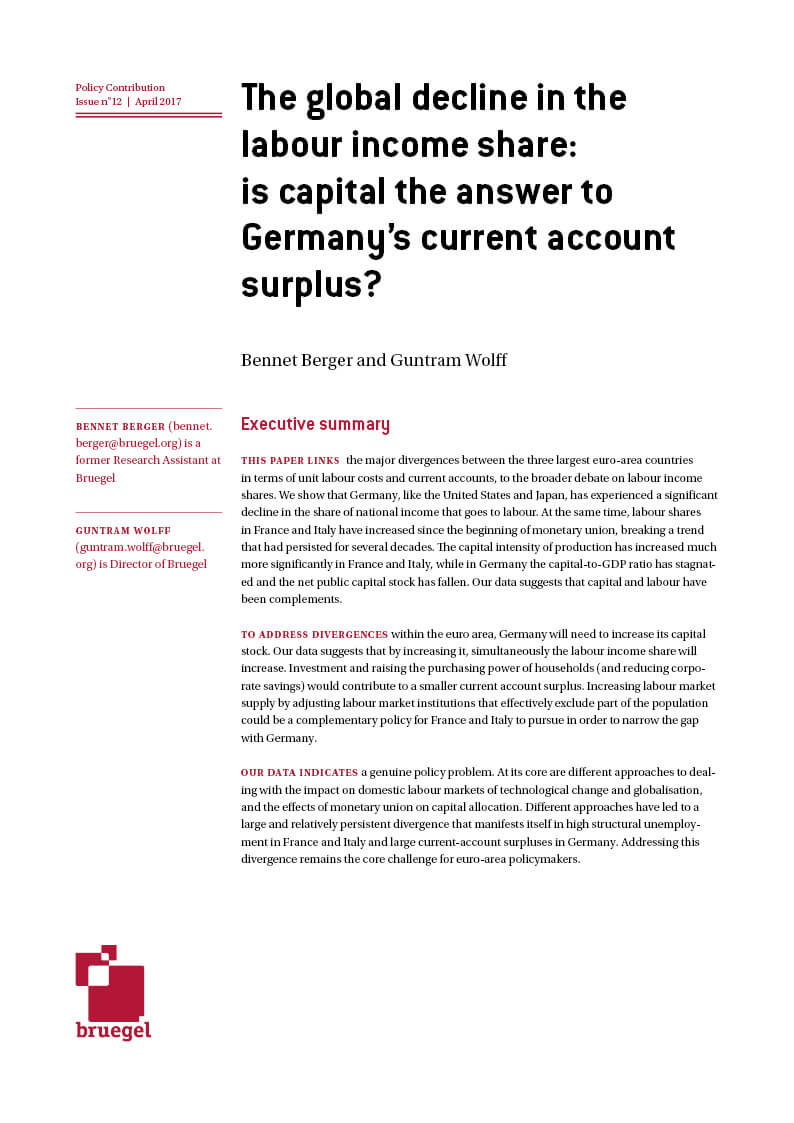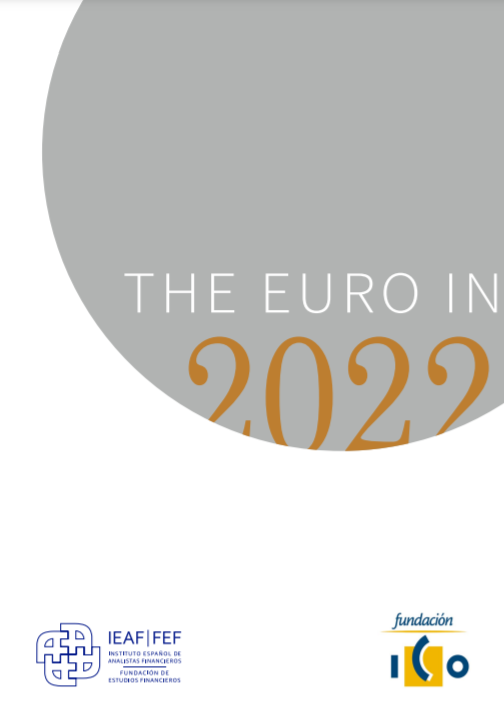Policy Contribution
The global decline in the labour income share: is capital the answer to Germany’s current account surplus?
Analysing the major divergences between the three largest euro-area countries in terms of unit labour costs and current accounts, to the broader debate on labour income shares. Data suggests that capital and labour have been complements.
This paper links the major divergences between the three largest euro-area countries in terms of unit labour costs and current accounts, to the broader debate on labour income shares. The authors show that Germany, like the United States and Japan, has experienced a significant decline in the share of national income that goes to labour. At the same time, labour shares in France and Italy have increased since the beginning of monetary union, breaking a trend that had persisted for several decades. The capital intensity of production has increased much more significantly in France and Italy, while in Germany the capital-to-GDP ratio has stagnated and the net public capital stock has fallen. Our data suggests that capital and labour have been complements.












